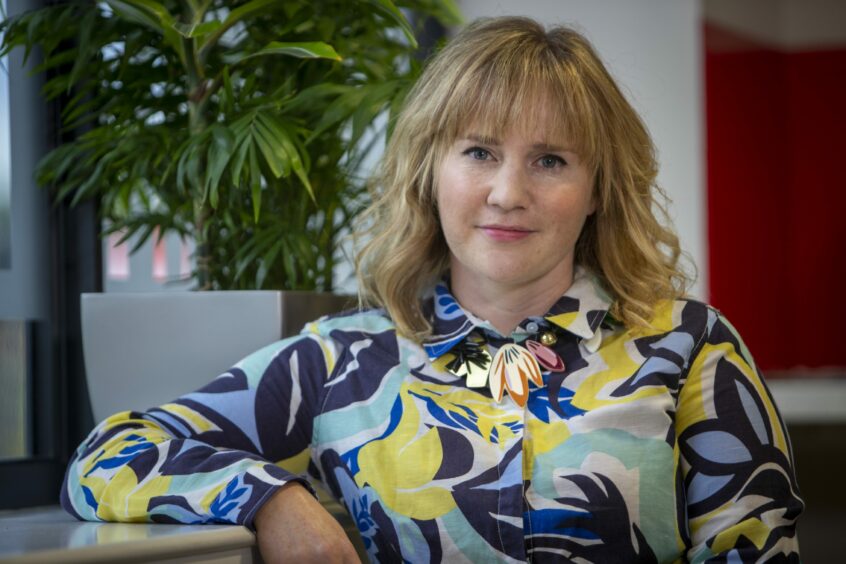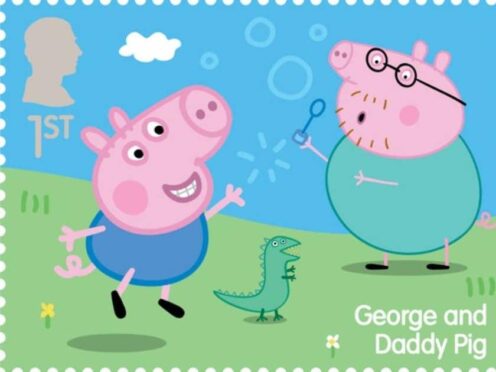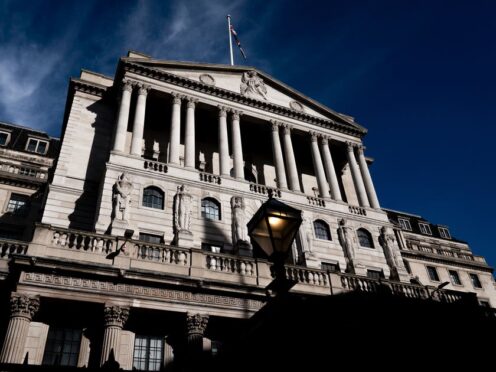A growing number of people are considering either withdrawing money or stopping paying into their pension in a move that has been condemned as “stealing from your future self”.
Nearly a quarter (23%) of people with a pension are considering withdrawing money from it, or stopping paying in, or reducing the size of their contributions, to ease the pressure on their finances, the research from insurance giant Aviva found.
Younger people in particular are even more likely to sacrifice their future pension provision to make ends meet which “rings massive alarm bells”, a financial adviser said.
More than two-fifths (42%) of 16 to 24-year-olds and just under two-fifths (38%) of 25 to 34-year-olds are likely to make changes to relieve their current financial situation, according to Aviva.
Jenny Madhoo is the founder and creator of SpringGen, an Aberdeen-based financial advice platform for Millennials and Generation Z.
Millennials are those born after 1981 while Gen Zers are born after 1996.
She said: “Life is hugely challenging at the moment for many in the north and north-east, with the temptation to cut costs wherever possible to make things a bit easier.
“The burden on younger people is particularly tough, and some may be looking towards their pension schemes for saving some extra money.
“This rings massive alarm bells as a financial advisor, as when it comes down to it, by stopping contributing to a pension, you’re stealing from your future self.”
Don’t walk away from free money
People who have pensions through their employer also receive extra contributions.
By law, most employers must enroll most of their employees in a pension and make a minimum contribution totalling 3% of the employee’s earnings.
People and employers can choose to pay more, but people also have the opportunity to choose to opt out entirely, which Ms Madhoo warns against.
“You may also be walking away from free money you’re entitled to from your employer – so you could effectively be giving yourself a pay cut which is the last thing you want to do right now,” she said.
What is compound interest?
People who are reducing or stopping payments into their pension often underestimate or don’t fully appreciate the increase in value their pension payments can accumulate.
Even setting aside the growth savings in pensions can enjoy if invested wisely, compound interest – the interest earned on interest – can add up.
For example, if £100 earns 5% interest each year, you’ll have £105 at the end of the first year and £110.25 in the second, and so on and so on.
Ms Madhoo said: “When it comes to finances it is essential to think about the future, not just the here and now, as compound growth means that saving tens of pounds now could cost you thousands down the line – that could be years added onto full-time work rather than retiring.
“We can’t get away from the cost-of-living crisis, I have been advising clients to try and ignore your pension completely and find ways to economise on your day-to-day spending instead.”
But what can you do if you really can’t afford to save?
If you really do need to economise and there’s no other option, Ms Madhoo said to at least keep paying in something.
“If you really can’t help it, try to reduce gradually rather than stop completely, or before you know it five years will pass and you won’t have restarted things again, with big repercussions. You could unwittingly create a future financial rut that you’re never able to climb out of,” she said.
READ: What Millennials and Gen Z need to know about economic recession
The survey by Aviva took in responses from more than 2,000 people between late September and early October.
Alistair McQueen, head of savings and retirement at Aviva, said: “When times are hard, we understandably try to find ways to cut costs, so considering your savings is an obvious thing to do. But it’s important to weigh up the pros and cons when it comes to your pension.
“Pensions carry unique financial benefits that cannot be replicated elsewhere.
“For example, if you are in a workplace pension, it is very probable that your employer will be contributing too. If you stop saving, your employer will probably stop with you, and this boost will be lost.
“Pension saving also benefits from tax relief. Stop saving, and tax relief will stop at the same time. It’s important to understand these other benefits when you are looking at your pension.
“Many modern pensions give you great control over how and when you save. For example, you can often stop, start, increase, or decrease the amount you save, as and when you want.
“And from the age of 55, there is great control of how and when you access your savings.
“The benefits of these simple flexibilities are more valuable than ever during these difficult times. However, it is important to consider all options and take advice if possible.”
Need more help?
See the free Government-backed Pension Wise guidance service, which is available to the over-50s.
People of all ages can also get free impartial help from the MoneyHelper service.












Conversation